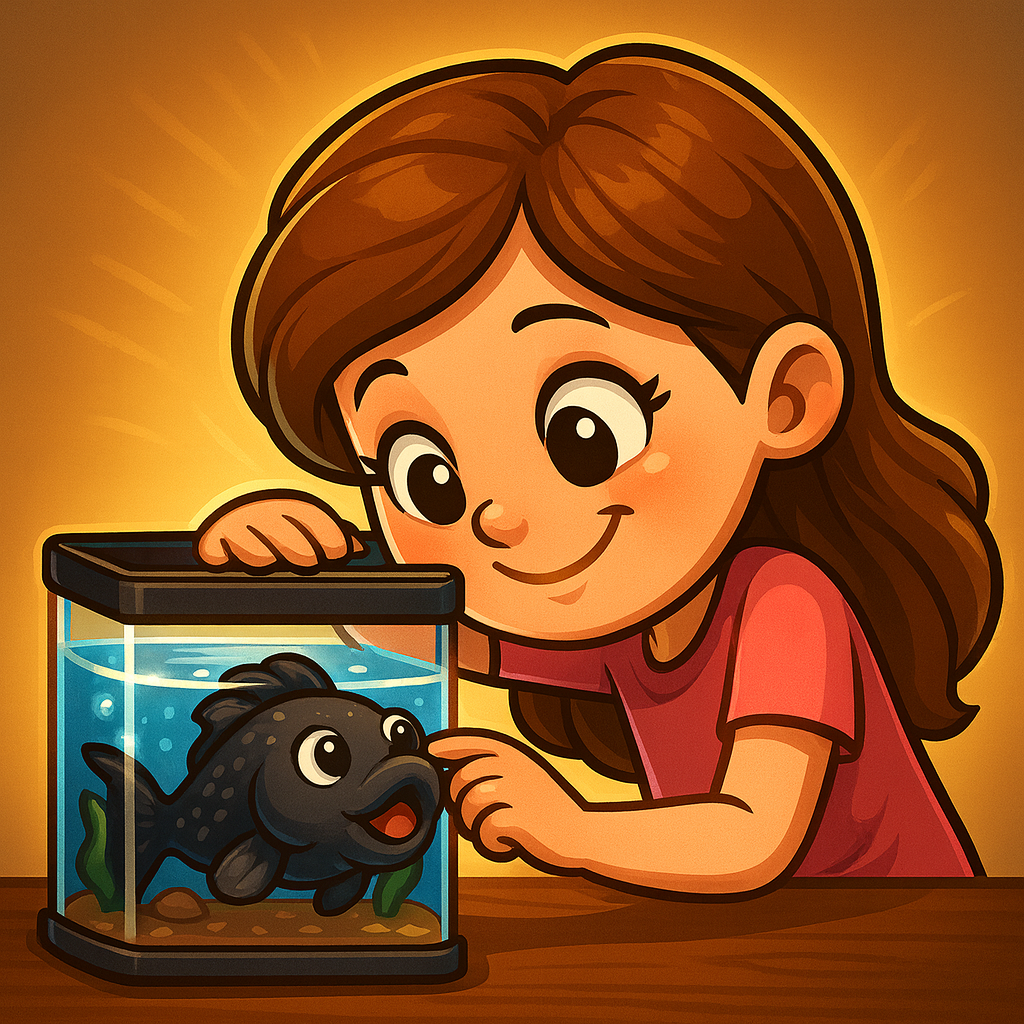Is It OK to Pet Your Fish?
❌ Why You Should Avoid Petting Fish
- 🧴 Slime Coat (Mucopolysaccharide Layer)
- Fish are covered in a protective slime layer made of mucopolysaccharides.
- Functions:
- 🛡️ Shields against bacteria, fungi, parasites.
- ⚖️ Maintains osmoregulation (salt/water balance).
- 🏊 Reduces drag when swimming.
- Problem: Touching them strips or damages this layer, leaving them open to infection and stress.
- ✋ Stress Hormones (Cortisol Release)
- Physical contact triggers cortisol, the stress hormone.
- Effects: suppressed immunity, increased disease risk, loss of appetite, and shortened lifespan.
- 🦠 Contaminants on Human Skin
- Even if you rinse your hands, traces of soap, lotion, sanitizer, sunscreen, or oils can:
- Burn delicate gill tissue.
- Damage skin/scales.
- Cause chemical stress comparable to ammonia burns.
- Even if you rinse your hands, traces of soap, lotion, sanitizer, sunscreen, or oils can:
- 🐟 Physical Injuries
- Fish scales and skin are fragile. Even light pressure can:
- Knock off scales.
- Tear fins.
- Bruise or crush internal organs.
- Small fish (bettas, tetras) are especially at risk; even koi and oscars can lose scales from repeated touches.
- Fish scales and skin are fragile. Even light pressure can:
❌ “But My Fish Likes It!”
- Many tame species (koi, goldfish, oscars, large cichlids) approach hands in the water.
- They appear to “like” being touched, but in reality they:
- Are seeking food.
- Are curious, not affectionate.
- Even if your fish seems to enjoy or invite handling, do not pet or grab them — the damage to their slime coat and stress response still occurs.
✅ When Handling is Unavoidable
- 🧤 Use Wet Hands or Aquarium Gloves (to reduce slime coat loss).
- 🕸️ Use a Soft Net whenever possible.
- 🧼 Never handle with soaps/lotions on skin — rinse with plain water only.
- 🏥 Medical or Emergency Situations Only:
- Tank transfers.
- Health inspections.
- Treatments (e.g., parasite dips).
⚠️ Bottom Line
- ❌ Don’t pet fish — even if they appear to like it.
- ✅ Safe ways to interact:
- Hand feeding pellets or treats.
- Adding enrichment (plants, caves, toys).
- Observing their natural behavior.
- 👉 Remember: Fish are not touch-pets like cats or dogs — they thrive best when admired, not handled.

Powered by Lightspeed
Display prices in:USD